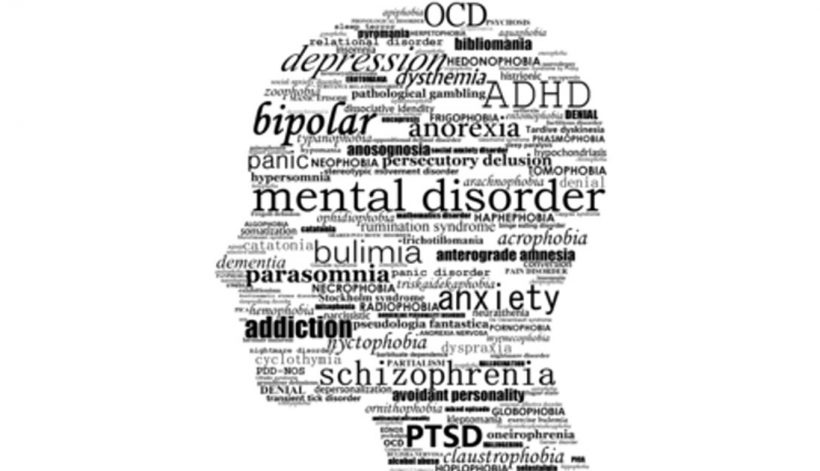You have probably experienced an emotional phase in your life that has negatively affected you and left you feeling gloomy. Instead of asking for help to cope better with your situation, you were afraid of seeking help because of what people might think or say. Health experts say the stigma of mental illness is rife and that’s the reason people tend to be in denial or don’t want to confront the emotions they might be going through. Psychiatrist, Dr Linessa Moodley, and clinical psychologist, Nompumelelo Kubheka, share expert advice that discredits the stigma and myths on mental illness.
WHAT IS MENTAL ILLNESS?
The World Health Organisation defines health as a state of complete physical, mental and social well-being and not merely the absence of disease or illness. Mental illness and disorder can be understood as an illness that adversely affects emotions, cognition, behaviour or speech and results in deterioration in the level of functioning at work, in your personal life, family roles and responsibilities. Dr Linessa says, “Countless people are living in stressful conditions and it comes as no surprise that mental disorders have become common. The consequences of untreated mental disorders may be severe, potentially life- threatening and adversely affect multiple domains of life.” There are multiple causes of mental illness and no one reason can be pointed out as a single cause. “Mental illness is similar as a combination of genetic predisposition (or family history), early life trauma and adversity, stressors, medical illnesses and substances, among other factors. They all influence each other and the likelihood of developing mental illness,” says Dr Linessa.
SIGNS AND SYMPTOMS
- Persistent changes to your mood
- Feeling that you are not coping with your day-today activities
- Having unusual experiences such as seeing or hearing things
- Having trouble with your memory
- Having thoughts of harming yourself
- Having difficulty with substance abuse.
COMMON MENTAL HEALTH ISSUES
According to the health and medical news website WebMD, these are some of the most common mental health issues:
- Anxiety disorders: People with anxiety disorders respond to certain objects or situations with fear and dread, as well as physical signs of anxiety or panic, such as a rapid heartbeat and sweating.
- Mood disorders: These disorders involve persistent feelings of sadness or periods of feeling overly happy or fluctuations from extreme happiness to extreme sadness.
- Psychotic disorders: These involve distorted awareness and thinking. One of the most common symptoms of psychotic disorders is hallucinations.
- Eating disorders: These involve extreme emotions, attitudes and behaviours involving weight and food.
- Impulse control and addiction disorders: People with impulse control disorders are unable to resist urges or impulses to perform acts that could be harmful to themselves or others.
- Personality disorders: People with personality disorders have extreme and inflexible personality traits that are distressing to the person and or cause problems at work, school or relationships.
- Obsessive-compulsive disorder (OCD): People with OCD have constant thoughts or fears that cause them to perform certain rituals or routines.
- Post-traumatic stress disorder (PTSD): PTSD is a condition that can develop following a traumatic and or terrifying event, such as sexual or physical assault or the unexpected death of a loved one.
DEALING WITH STIGMA
Stigma may be the reason you are suffering in silence when you have a mental illness. “Many people feel that seeing a psychiatrist means that something is very wrong and that a referral is an admission of severe illness. Few people see the role of psychiatrists as someone who helps ordinary people deal with extraordinary situations. This unfortunately means that many people who need psychiatric help don’t receive it and are left to struggle on their own unnecessarily,” says Dr Linessa. Nompumelelo says the lack of knowledge on mental illness derails the treatment process and leads to people suffering in silence. “There is a lot of poor judgement, insight and ignorance when it comes to mental illness, especially among black people. Some call it the white people’s illness and in black cultures, a man is expected to be strong and not show emotion. This is not right.” Nompumelelo adds that people may be quick to blame witchcraft when someone has a mental illness. “For instance, someone who is from a rural area may be quick to use bewitchment as a point of reference when someone has a mental illness because of the general perception that exists in rural areas,” she says. “Mentally ill patients are called crazy, mad and dangerous and this doesn’t encourage them to get treated because some of them don’t want to be seen as different and abnormal.”
GETTING TREATMENT
Nompumelelo says it may be difficult for people to get treatment because mental illness is not physical like a wound. “A wound is easily treatable as it can be seen. It can also be hard for someone who is mentally ill to seek help and explain how they feel. They might prefer medication and refuse to talk about their problems.” She adds that there are different types of mental illnesses; some are chronic while others are brief. There are also different types of mental illnesses and treatment so it is always important to consult a medical practitioner to get the correct diagnosis and treatment. Dr Linessa says, “If you are worried about someone you love or care for, start by talking to them and asking how you could be of help to them. More harm may be done by avoiding the situation than by simply talking about the symptoms. Encourage them to see a professional.”
Source: Health24




